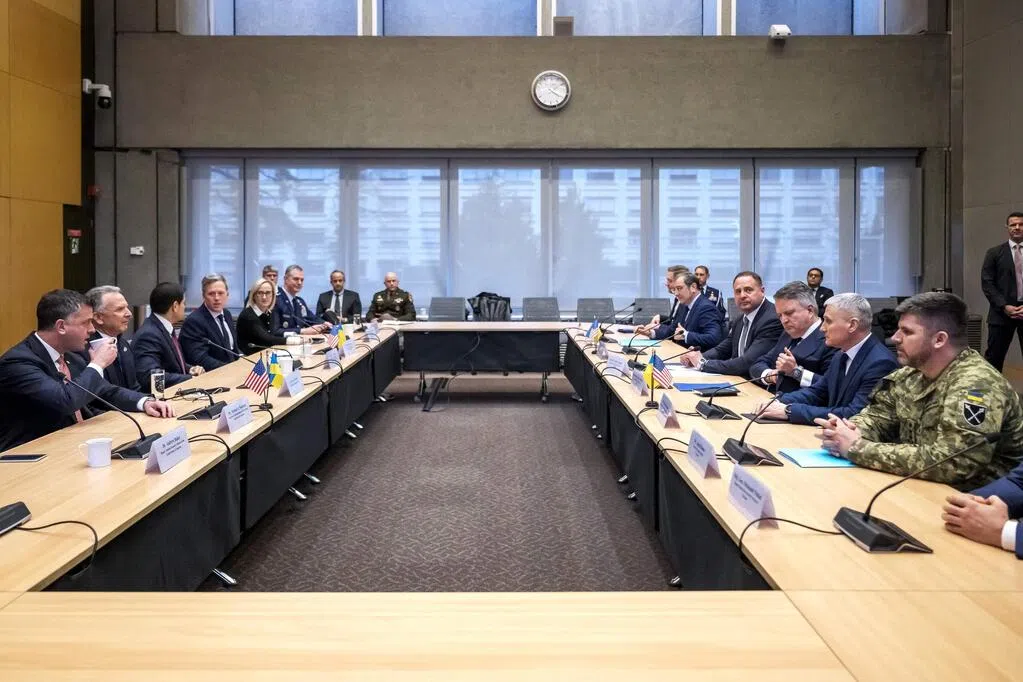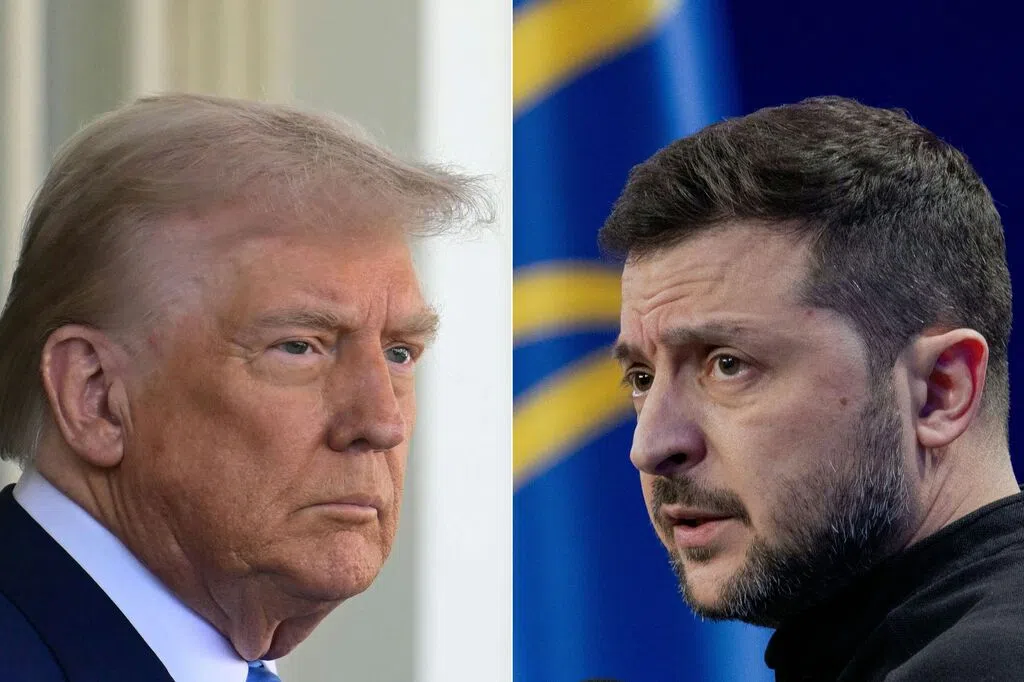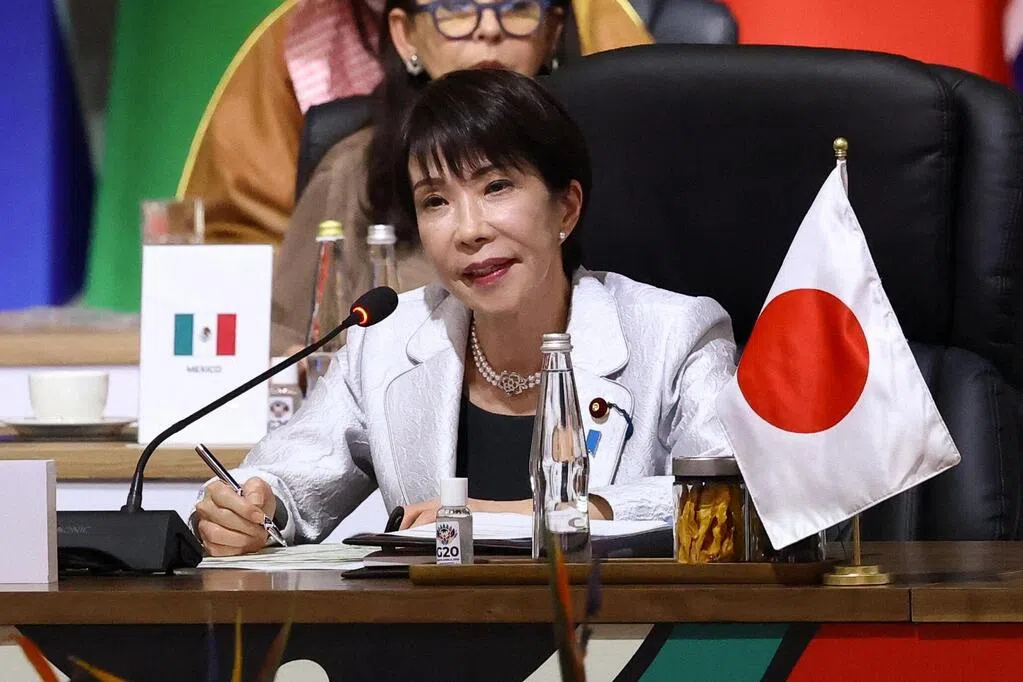(Washington) -- The 28-point peace plan proposed by the United States to end the Russia-Ukraine war has temporarily diverted Ukrainians' attention from domestic corruption scandals and unexpectedly boosted President Zelensky's political standing. Affected by the corruption scandals, Zelensky is embroiled in a political crisis, making it unlikely that he will accept the US proposal against the will of the people.
The Wall Street Journal points out that Zelensky is in his most vulnerable position since the outbreak of the Russia-Ukraine war due to his involvement in the corruption scandals that have sparked public outrage. However, it is precisely this vulnerability that makes it even less likely that he will concede to the Trump administration.
Although there is widespread weariness of war and a desire for peace, most Ukrainians believe that the US proposal is essentially a demand for Ukraine's surrender; given the heavy costs and slow progress achieved by the Russian army on the battlefield, this is unreasonable.
Ukrainian opposition lawmaker and Zelensky's harsh critic, Zheleznyak, said, "We are not prepared to surrender... The problems he (Zelensky) faces do not affect our negotiating ability, even if the US may mistakenly believe so."
Former German Defense Ministry official Nico Lange also believes, "Trump seems to be making the same mistake (Russian President) Putin has repeatedly made: underestimating the strength of Ukrainian society and not understanding what kind of country Ukraine really is. No Ukrainian president—especially the weakened Zelensky—has the right to agree to such a thing. If he did, he would no longer be president when he returns home."
Further Reading


Currently, no prominent Ukrainian politician has called for Zelenskyy to step down or hold elections before the war ends.
Former Ukrainian Foreign Minister Kuleba stated that the situation on the battlefield in Ukraine could worsen next year, with Russia's demands potentially becoming more stringent. However, the Zelenskyy government believes that yielding to Trump's demands would have more severe consequences than rejection, as accepting an agreement rejected by the people would be tantamount to political suicide.
The US proposal includes demands for Ukraine to cede parts of Donbas that Russia failed to occupy, impose restrictions on its armed forces, and abandon its NATO membership. Vienna-based military analyst Franz-Stefan Gady warned that while the Ukrainian army is exhausted, it remains determined to continue fighting. If Zelenskyy orders the surrender of northern Donbas cities, it could trigger a crisis in relations between the military and the public.
Former Ukrainian Economy Minister Milovanov also stated, "People understand that if there is a mass surrender to Russia, the death toll will only increase. For any agreement to pass, it must convince Ukrainian civilians and soldiers that their lives will be protected and that the war will not reignite."
The US proposal allows Zelenskyy to regain his role as a leader uniting the nation.
The New York Times analysis points out that the US proposal, at least in the short term, diverted Ukrainians' attention from corruption scandals and unexpectedly strengthened Zelenskyy's domestic political standing, allowing him to regain his role as a leader uniting the nation.
Earlier this month, audiotapes released by Ukraine's independent anti-corruption agency revealed that the Minister of Justice and the Minister of Energy were involved in a corruption network involving hundreds of millions of dollars; both have since been dismissed. Prior to this, Zelenskyy had pushed for legislation in parliament to strip the anti-corruption agency of its independence, but was forced to change course after triggering massive public protests.
Analysts point out that Zelenskyy has become a skilled political performer in the crucible of war; when cornered, he often takes the initiative and frequently turns weakness into advantage.
After receiving the US proposal, Zelenskyy recorded a stirring speech urging Ukrainians to stop bickering and not allow the enemy to divide the country. He framed the proposal as an either-or choice: either lose US support or accept Russian conditions that would strip Ukraine of its dignity. He simultaneously prepared Ukrainians for possible concessions while emphasizing US pressure to distance himself from the proposal.
Meanwhile, Zelenskyy once again demonstrated his exceptional communication skills, quickly seeking support from European allies.
The New York Times points out that Zelenskyy's wartime command abilities are facing another critical juncture. His political future may depend on how he handles negotiations with the Trump administration and subsequently deals with corruption scandals. Some Ukrainians believe that failing to directly address corruption could be his Achilles' heel.



